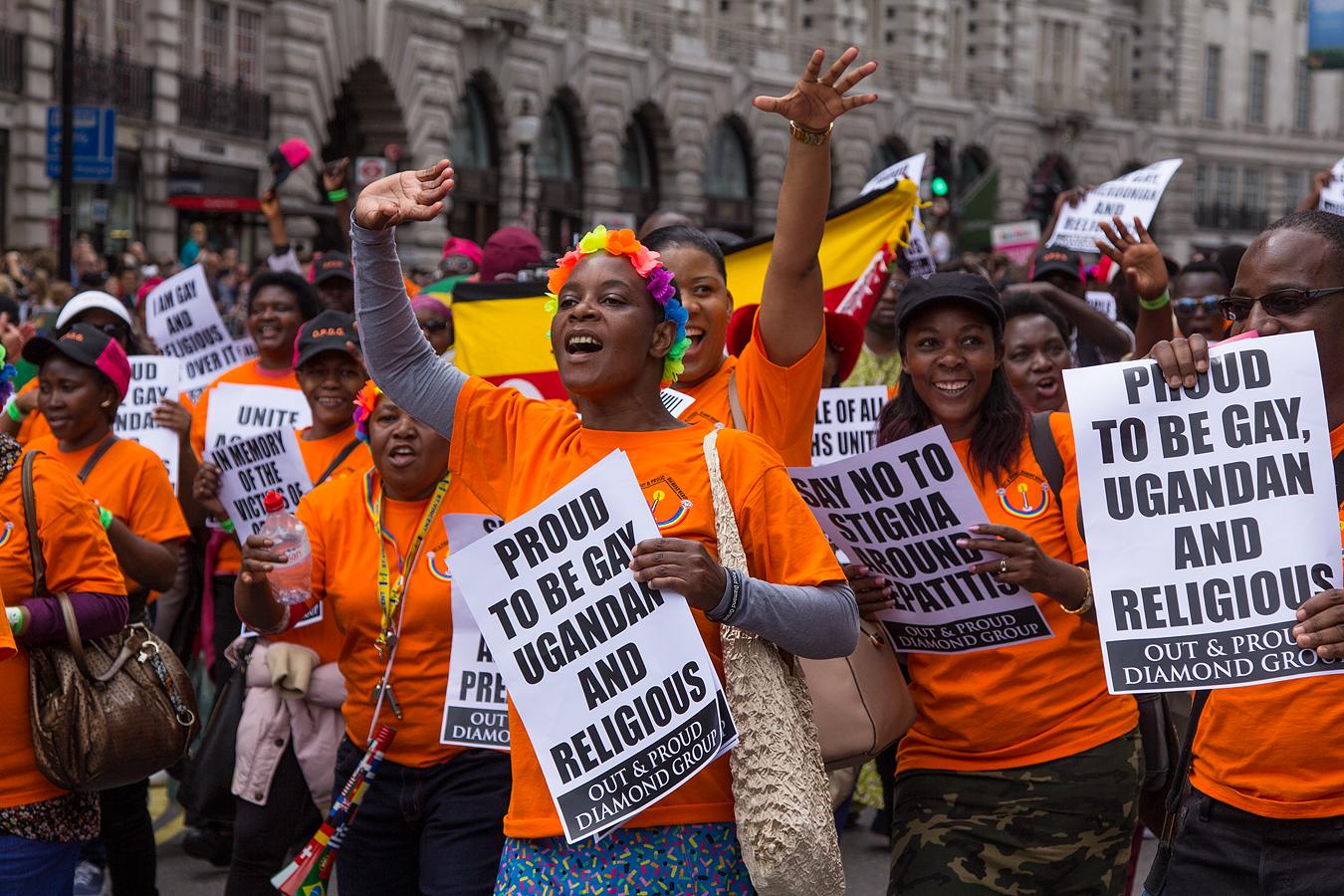Uganda is one of at least seventy-two countries where homosexuality is criminalized. On October 10th, lawmakers stated that they would be reintroducing a bill to carry out tougher punishments against homosexual acts, recalling the 2013 “Kill The Gays” bill that proposed the death penalty for certain cases. Uganda is moving backwards on the issue of gay rights, though not to a time before colonialism, the era in which anti-gay legislation has its roots.
Many Africans don’t recognize homophobia as a colonial legacy even though before colonialism many traditional cultures were inclusive of different sexualities. Africa’s sexual politics have now been picked up by US Christian Evangelist.
Many Africans don’t recognize homophobia as a colonial legacy even though before colonialism many traditional cultures were inclusive of different sexualities.
Today, the law sentences homosexual acts to fourteen years of life imprisonment. This illegality of homosexuality makes LGBTQ+ members hesitant to seek help for HIV/Aids. Activists claim that the existing laws and policies make it harder for gay people to get jobs, rent homes, access healthcare and education services. Additionally, violence against the LGBTQ+ community has picked up pace in recent months. In fact, earlier this month, an LGBTQ+ activist and paralegal, Brian Wasswa, died as the result of an attack at his home the previous day. His death comes at a time when three other LGBTQ+ murders were also carried out in the last three months, as stated by Sexual Minorities Uganda, a local advocacy group.
The rising tensions and violence have, to a large extent, been instigated by the claim to reintroduce stronger laws against homosexuality. Pervasive homophobia often hinders investigations that would bring justice to these murdered victims. Accountability for the lives of LGBTQ+ members is not enforced to a satisfactory level, as is evident through the rising mortality rate of LGBTQ+ Ugandans.
In an interview by Thomson Reuters Foundation, Simon Lokodo, Uganda’s Ethics and Integrity Minister, stated that the criminalization of the act wasn’t enough as the acts are still being carried out. With the reintroduction of the bill, they hope to criminalize not only the act, but “the recruitment, promotion, and exhibition” of homosexuality. If passed, these changes will severely impact the already dangerous fight for LGBTQ+ rights by Ugandan activists.
The recent statements by MPs have drawn attention to the American donors and Christian Evangelist supporters of the anti-homosexuality bill of 2009. It was, in fact, the American Evangelical Christians who encouraged the anti-homosexual sentiment in Uganda that led to their original bill. In 2010, a year after the bill was originally introduced, Uganda was at the center of the American culture war. Funding was coming from the Christian right as well as LGBTQ+ activists to support their respective ideologies. A month before the bill was passed, three American Evangelists helped shape the cultural discourse over the span of a three-day anti-gay conference in Uganda. Kapya Kaoma, a Zambian human rights activist, was present at the conference and heard of the dangers of homosexuality and how homosexuals can be “saved” by conversion.
This is a reminder of the influence Western states have in foreign countries; influence imposed through the power dynamics of the colonial legacies of the global past.
At the time, Mr. Kaoma emphasized the powerful impact of three white men telling Ugandans that a certain group would come to destroy their family and children. The message, which is communicated to a society with strong family values, is ingrained in their ideology even today. Uganda, a country with deep-rooted Christian values established through its colonial past, is a popular landing place for American Evangelical groups to come and spread their message. This is a reminder of the influence Western states have in foreign countries; influence imposed through the power dynamics of the colonial legacies of the global past.
Open proclamations about the legislation being reintroduced by ministers of Parliament, like James Nsaba Buturo and Simon Lokodo, have been contradicted by a spokesperson for Ugandan President Yoweri Museveni, claiming that they do not currently intend to reintroduce the bill. This statement came after major aid donors expressed concerns. However, call for such laws by figures of authorities, even without actual action, only serve to encourage and normalize the homophobia already exhibited in the country.
While the intensification of the bill is not being actively pursued at the moment, Uganda is experiencing an uptake in civic unrest. LGBTQ+ members have become scapegoats and targets of state violence because of the endorsement of capital punishment for homosexuality by some members of the state.
LGBTQ+ members have become scapegoats and targets of state violence because of the endorsement of capital punishment for homosexuality by some members of the state.
The constant and recurring anti-gay proclamations made by MPs makes the LGBTQ+ activist community that much more vulnerable to human right violations and violence at the hands of homophobic organizations.
Despite this adversity, Uganda has a strong and outspoken LGBTQ+ activist community, making great headway in the international sphere by raising awareness about anti-gay sentiment in Uganda.
Edited by Naya Sophia Moser.
Photo credits: “Uganda, London LGBT Pride Parade” by Chris Beckett. Published June 25th, 2016. This work was sourced under a Attribution-NonCommercial-NoDerivs 2.0 Generic (CC BY-NC-ND 2.0). No changes were made.
Mehak Balwani is in her third year at McGill University, currently pursuing a B.A. in International Development and English Literature.

